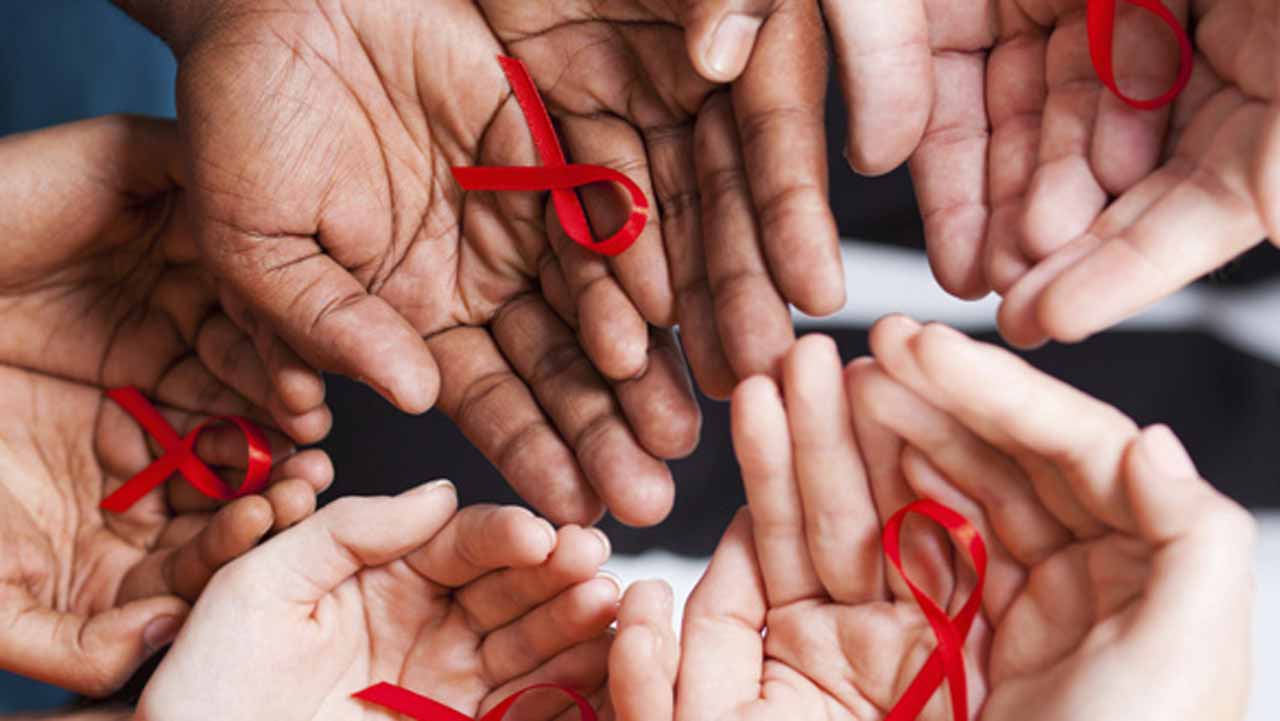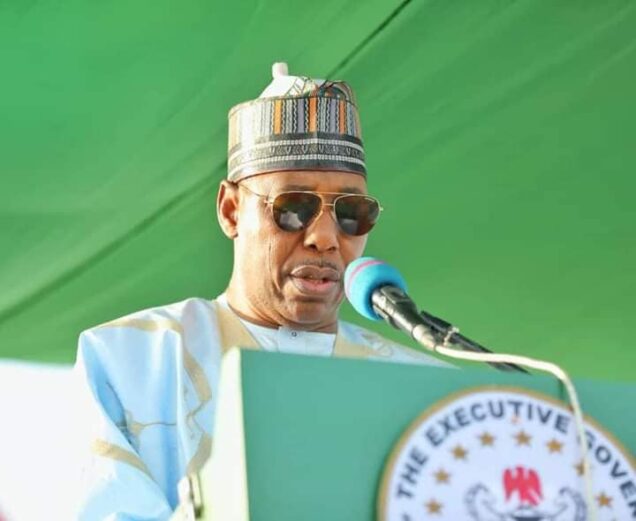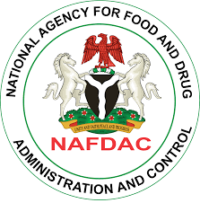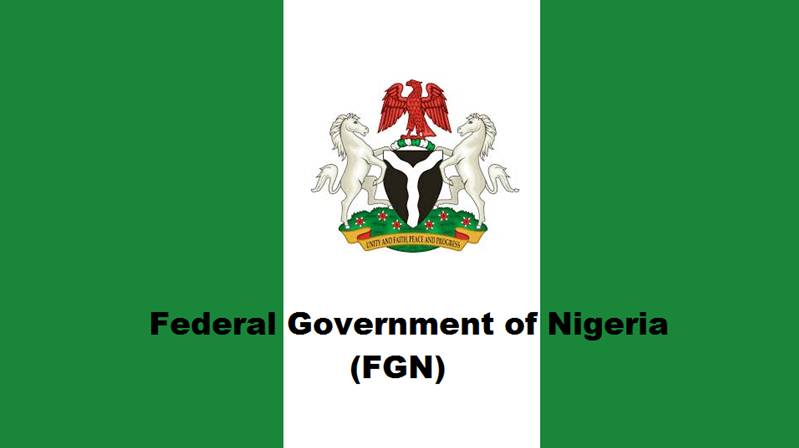Headlines
AIDS Day: No end to infection by 2030 as 1.8m Nigerians live with HIV

As Nigeria joins the rest of the globe to mark World AIDS Day (WAD), today, it is estimated that no fewer than 1.8 million Nigerians are living with Human Immuno-deficiency Virus (HIV) that causes Acquired Immune Deficiency Syndrome (AIDS).
Unlike what obtains in other parts of the world, the National Agency for the Control of AIDS (NACA), claims a decline in HIV/AIDS deaths and new infections nationwide.
The agency said the Federal Government had spent more than N18 billion in three years on HIV capital projects and HIV no longer kills now as long as people know they have it.
Also, an investigation by The Guardian shows that persons living with HIV still pay some fees for supposedly ‘free’ treatment offered by the Federal Government nationwide, just as AIDS campaigners say delays in accessing affordable long-acting, injectable HIV medicines globally would cost lives.
The theme of WAD 2022 is ‘Equalise’, which emphasises eliminating the inequalities that have slowed the fight against the disease.
Meanwhile, the Joint United Nations Programme on AIDS (UNAIDS), yesterday, said, in 2021, 650,000 people were lost to AIDS and 1.5 million people newly acquired HIV, while there were an estimated 38.4 million (33.9–43.8 million) people living with HIV at the end of 2021, two-thirds of whom (25.6 million) are in Africa.
Also, the United Nations Children’s Fund (UNICEF) said some 110,000 youths under age 19 died last year from AIDS-related causes, noting that coupled with 310,000 newly infected, the total number of young people living with HIV stands at 2.7 million.
UNICEF warned, in its latest global snapshot on children, HIV and AIDS, that progress in HIV prevention and treatment has nearly flattened over the past three years, with many regions still not at pre-pandemic service coverage.
Director General of NACA, Dr. Gambo Gumel Aliyu, in an exclusive interview with The Guardian, said: “We have an estimate of about 1.8 million and we are working with our data to know the actual number that is now very active, that is, they are alive and receiving medications. Those are the ones we count because they are the ones we know, they are alive, on our register, and they know they have HIV.
“Those ones that are no longer alive but are in our register, we will take them out and at the end of the day, we will have an alternative number. So, we are working on our data to get that exact number but our estimation is less than two million people that are currently living with HIV in Nigeria.”
The AIDS Healthcare Foundation (AHF) has called on leaders in the country to ensure zero new infections, zero stigma and discrimination, especially in young girls.
Dr. Echey Ijezie, Country Programme Director, AHF Nigeria, said: “This is because our data is showing that of the 7,600 new infections that happen in young people in 2021, 6,800 of them are girls, while less than one million are boys.
“So, if we invest more in girls, we secure their future, we secure their future partner and the life of the child she will give birth to.
“This is a call to Nigeria as a country; we have gone a long way in HIV response, we have good plans, now we need to implement with our monies, energy and commitment,” she said.
Also speaking, Strategic Information Admin, UNAIDS, Dr Takpa Koubaguine, said equalise to end AIDS, the theme of the year’s commemoration, was to give chance to everybody to access their health right, HIV prevention and access to treatment.
Deputy Director of Prevention and Social Behaviour Change Communicator, NACA, Dr Daniel Ndukwe, said the agency was presently reviewing the National Strategic Plan for the country. Ndukwe said the new plan was better, with more informed response than the previous one, adding that the plan has a gender dimension to HIV.
He stressed that women were more vulnerable to HIV due to their biological make-up as well as socio and cultural factors.
NACA, in partnership with the Maximising Options to Advance Informed Choice for HIV Prevention (MOSAIC) project, has declared that HIV remains a serious health challenge in Nigeria with 41 per cent of new cases occurring among young people ages 15 to 24.
This was contained in a statement yesterday made available to newsmen in Calabar by the Generation Negative (Gen-N) campaign, which seeks to build a movement fueled by the country’s 43.2 million youths between 15 and 24 to catalyse uptake of HIV prevention, treatment and care services by adolescents and young persons in the country.
According to Ndukwe, “it is within our power to stop the spread of HIV, but we cannot expect young people to do it alone when they are shamed for visiting health facilities, taking medications or buying condoms.”
Ndukwe encouraged young people to take action as Gen-N heroes by accessing available HIV prevention and treatment services and encouraging other young people to support peers to remain HIV-negative and live positively.
On the number of deaths and new infections, the NACA DG, who is an Assistant Professor in Epidemiology and Public Health at the University of Maryland School of Medicine, said: “We are collecting this information and one thing we have seen over the last three years is that the numbers dying from HIV/AIDS are declining and the numbers of those getting infected with HIV are declining too.”
On the proposed budget for HIV, from the 2023 appropriation bill, the epidemiologist said: “For the last three years, our capital budget has been around N6 billion and that includes all the work we do on HIV prevention and treatment, creating awareness, coordinating stakeholders, monitoring and evaluating programmes, interventions for prevention and treatment across the country.”
Aliyu said NACA is working to expand services for prevention of mother-to-child transmission and promotion to access Anti Retroviral Baby (ARB) services by the pediatric population.
Reacting to an investigation that showed HIV patients still pay some ‘hidden’ fees for Anti Retroviral (ARV) drugs that are supposedly free, the NACA boss said: “We are aware of it, the fees that are paid differ from state to state and hospital to hospital; they are called user fees. We have been working with the Network of People Living with HIV/AIDS in Nigeria (NEPWHAN), we have been working with stakeholders and we have equally been working with some partners- the Global Funds for AIDS, TB and Malaria, as well as authorities at the state level to help us waive user fees. We are advocating that states can actually do away with user fees and the folder money persons living with HIV pay during registration and consultation.
“However, the tests we provide to monitor treatment progress are free. Some of the tests we provide to initiate people on treatment are also free, but some of the tests are not free and these are user-dependent or patient-specific; some patients may require additional tests, while some may not. So, those additional tests that are needed based on doctors’ assessments are fees that patients should be responsible for, but fees that cuts across everyone and which we believe are an unnecessary burden, the states can help. We are working with the states to see that those fees are waived and some of the states have encouragingly done that,” he said.
On whether Nigeria is on course towards meeting the target to end HIV by 2030, Aliyu said: “The truth is HIV no longer kills now as long as people know they have it. We can help them keep it in their body without allowing it to be seen on their faces or their body or allow it to leave their body to infect someone else. That is the progress that has been made; this is what we are working with to end AIDS.
The day you stop seeing people with HIV by their features, the day you ask and you are told that for the last year all over the country, there is no record of someone dying at any facility in the country with HIV, the day you hear or see people going out of their way to demand for HIV services because they no longer fear the stigma and discrimination that was previously associated with HIV/AIDS, then HIV/AIDS has ended or is about to end.”
He, however, said HIV may remain for as long as there is no cure for the virus, but the manifestation of HIV, which results in AIDS is certainly something that can end before 2030 and this is what NACA is working hard to achieve.
MEANWHILE, the World Health Organisation (WHO) has said the global HIV response is in danger, even as HIV remains a major public health issue that affects millions of people worldwide. It said over the last few years, progress towards HIV goals has stalled, resources have shrunk and millions of lives are at risk as a result.
According to WHO, division, disparity and disregard for human rights are among the failures that allowed HIV to become and remain a global health crisis.
WHO is, therefore, calling on global leaders and citizens to boldly recognise and address the inequalities holding back progress in ending AIDS; and equalise access to essential HIV services, particularly for children and vulnerable populations and their partners – men who have sex with men, transgender people, people who use drugs, sex workers, and people in prisons.
UNICEF Associate Chief of HIV/AIDS, Anurita Bains, said: “Though children have long lagged behind adults in the AIDS response, the stagnation seen in the last three years is unprecedented, putting too many young lives at risk of sickness and death.”
This comes on top of an existing and growing gap in treatment between adults and children, adolescents and pregnant women. “Every day that goes by without progress, over 300 children and adolescents lose their fight against AIDS.”
Despite accounting for only seven per cent of overall people living with HIV, children and adolescents comprised 17 per cent of AIDS-related deaths, and 21 per cent of new HIV infections last year.
Unless the drivers of inequities are addressed, UNICEF warns, ending AIDS in children and adolescents will continue to be a distant dream. However, the snapshot points out that longer-term trends remain positive.
Similarly, coverage of lifelong antiretroviral treatment (ART) among pregnant women living with HIV increased from 46 per cent to 81 per cent in a single decade.
While the total number of children living with HIV is on the decline, the treatment gap between children and adults continues to grow.
In UNICEF’s HIV-priority countries, ART coverage for children stood at 56 per cent in 2020 but fell to 54 per cent in 2021.
Several factors were responsible for the decline, including the pandemic and other global crises that have increased marginalisation and poverty.
Globally, only 52 per cent of children living with HIV had access to treatment, which has only marginally increased over the past few years.
Among all adults living with HIV, meanwhile, coverage at 76 per cent was more than 20 percentage points higher than among children.
And there was an 81 per cent gap between children and pregnant women living with HIV.
Moreover, the percentage of children living with HIV under age four who are not on ART climbed to 72 per cent last year – as high as it was in 2020.
In 2021, more than 75,000 new child infections occurred because pregnant women were not diagnosed and initiated treatment.
Commenting on the new report, Executive Director UNAIDS, Winnie Byanyima, stated that the world will not be able to defeat AIDS while reinforcing patriarchy. She stressed the need to address the intersecting inequalities women face.
She said: “What world leaders need to do is crystal clear. In one word: Equalise. Equalise access to rights, and services, as well as to the best science and medicine. Equalising will not only help the marginalised, but it will also help everyone. In areas of high HIV burden, women subjected to intimate partner violence face up to a 50 per cent higher chance of acquiring HIV.
“Across 33 countries from 2015-2021, only 41 per cent of married women aged 15-24 could make their own decisions on sexual health. The only effective route map to ending AIDS, achieving sustainable development goals and ensuring health, rights and shared prosperity, is a feminist route map. Women’s rights organisations and movements are already on the front doing this bold work.
Leaders need to support them and learn from them.”
Headlines
Noble Ladies Champion Women’s Financial Independence at Grand Inauguration in Abuja

Women from diverse backgrounds across Nigeria and beyond gathered at the Art and Culture Auditorium, Abuja, for the inauguration and convention of the Noble Ladies Association. The event, led by the association’s Founder and “visionary and polished Queen Mother,” Mrs. Margaret Chigozie Mkpuma, was a colourful display of feminine elegance, empowerment, and ambition.
The highly anticipated gathering, attended by over 700 members and counting, reflected the association’s mission to help women realise their potential while shifting mindsets away from dependency and over-glamorization of the ‘white collar job.’ According to the group, progress can be better achieved through innovation and creativity. “When a woman is able to earn and blossom on her own she has no reason to look at herself as a second fiddle,” the association stated.
One of the association’s standout initiatives is its women-only investment platform, which currently offers a minimum entry of ₦100,000 with a return of ₦130,000 over 30 days—an interest rate of 30 percent. Some members invest as much as ₦1 million, enjoying the same return rate. Mrs. Mkpuma explained that the scheme focuses on women because “women bear the greater brunt of poverty” and the platform seeks “to offer equity in the absence of economic equality.”
Education is also central to the Noble Ladies’ mission, regardless of age. Their mantra, “start again from where you stopped,” encourages women to return to school or upgrade their skills at any stage in life. The association believes that financial stability is vital in protecting women from cultural practices that dispossess widows of their late husbands’ assets, while also enabling them to raise morally and socially grounded families.
Founded on the vision of enhancing women’s skills and achieving financial stability, the association rests on a value system that discourages pity and promotes purpose. “You have a purpose and you build on that purpose to achieve great potentials and emancipation,” Mrs. Mkpuma said.
A criminologist by training and entrepreneur by practice, she cautions against idleness while waiting for formal employment. “There are billions in the informal and non-formal sectors waiting to be made,” she said, rejecting the “new normal of begging” and urging people to “be more introspective to find their purpose in life and hold on to it.”
Mrs. Mkpuma’s management style keeps members actively engaged, focusing on vocational skills and training to prepare them for competitive markets. She is exploring “innovative integration of uncommon technologies” and is already in talks with international franchises to invest in Nigeria, with Noble Ladies as first beneficiaries.
The association’s core values include mutual respect, innovation, forward-thinking, equal opportunity, and financial emancipation. With plans underway to establish a secretariat in the heart of Abuja, the group aims to expand its impact.
The event drew high-profile guests, including former Inspector General of Police, Mike Okiro, and a host of VIPs, marking a significant milestone in the association’s drive for women’s empowerment.
Headlines
NEPZA, FCT agree to create world-class FTZ environment

The Nigeria Export Processing Zones Authority (NEPZA) has stepped in to resolve the dispute between the Federal Capital Territory Administration and the Abuja Technology Village (ATV), a licensed Free Trade Zone, over the potential revocation of the zone’s land title.
Dr. Olufemi Ogunyemi, the Managing Director of NEPZA, urged ATV operators and investors to withdraw the lawsuit filed against the FCT administration immediately to facilitate a roundtable negotiation.
Dr. Ogunyemi delivered the charge during a courtesy visit to the Minister of the Federal Capital Territory, Barrister Nyesom Wike, on Thursday in Abuja.
You will recall that the ATV operators responded to the revocation notice issued by the FCT administration with a lawsuit.
Dr. Ogunyemi stated that the continued support for the growth of the Free Trade Zones Scheme would benefit the nation’s economy and the FCT’s development, emphasizing that the FCT administration recognized the scheme’s potential to accelerate industrialisation.
Dr. Ogunyemi, also the Chief Executive Officer of NEPZA, expressed his delight at the steps taken by the FCT minister to expand the economic frontier of the FCT through the proposed Abuja City Walk (ACW) project.
Dr. Ogunyemi further explained that the Authority was preparing to assess all the 63 licensed Free Trade Zones across the country with the view to vetting their functionality and contributions to the nation’s Foreign Direct Investment and export drives.
“I have come to discuss with His Excellency, the Minister of the Federal Capital Territory on the importance of supporting the ATV to succeed while also promoting the development of the Abuja City Walk project. We must work together to achieve this for the good of our nation,” he said.
On his part, the FCT Minister reiterated his unflinching determination to work towards President Bola Ahmed Tinubu’s Renewed Hope Agenda by bringing FDI to the FCT.
“We must fulfil Mr. President’s promises regarding industrialization, trade, and investment. In this context, the FCT will collaborate with NEPZA to review the future of ATV, a zone that was sponsored and supported by the FCT administration,” Wike said.
Barrister Wike also said that efforts were underway to fast-track the industrialisation process of the territory with the construction of the Abuja City Walk.
The minister further said the Abuja City Walk project was planned to cover over 200 hectares in the Abuja Technology Village corridor along Airport Road.
According to him, the business ecosystem aimed to create a lively, mixed-use urban center with residential, commercial, retail, hospitality, medical, and institutional facilities.
He added that the ACW would turn out to be a high-definition and world-class project that would give this administration’s Renewed Hope Agenda true meaning in the North-Central Region of the country.
Barrister Wike also indicated his continued pursuit of land and property owners who failed to fulfil their obligations to the FCT in his determination to develop the territory.
Headlines
Benue IDPs block highway, demand return to ancestral homes

Vehicular movement along the Yelwata axis of the Benue–Nasarawa highway was brought to a standstill on Wednesday as Internally Displaced Persons, IDPs, staged a protest, demanding immediate return to their ancestral homes.
The protesters, believed to be victims of persistent attacks by suspected herdsmen, blocked both lanes of the busy highway for several hours, chanting “We want to go back home”.
The protest caused disruption, leaving hundreds of motorists and passengers stranded.
Eyewitnesses said the displaced persons, many of whom have spent years in overcrowded IDP camps, are expressing deep frustration over the government’s delay in restoring security to their communities.
“We have suffered enough. We want to return to our homes and farms,” one of the protesters told reporters at the scene.
Security personnel were reportedly deployed to monitor the situation and prevent any escalation, though tensions remained high as of press time.
Efforts to reach the Benue State Emergency Management Agency, SEMA, and other relevant authorities for comment were unsuccessful.
-

 Headlines4 years ago
Headlines4 years agoFacebook, Instagram Temporarily Allow Posts on Ukraine War Calling for Violence Against Invading Russians or Putin’s Death
-

 Headlines4 years ago
Headlines4 years agoNigeria, Other West African Countries Facing Worst Food Crisis in 10 Years, Aid Groups Say
-

 Foreign4 years ago
Foreign4 years agoNew York Consulate installs machines for 10-year passport
-

 News1 year ago
News1 year agoZero Trust Architecture in a Remote World: Securing the New Normal
-

 Entertainment3 years ago
Entertainment3 years agoPhyna emerges winner of Big Brother Naija Season 7
-

 Headlines2 years ago
Headlines2 years agoNigeria Customs modernisation project to check extortion of traders
-

 Entertainment2 years ago
Entertainment2 years agoMovie download platform, Netnaija, announces closure
-

 Economy2 years ago
Economy2 years agoWe generated N30.2 bn revenue in three months – Kano NCS Comptroller














